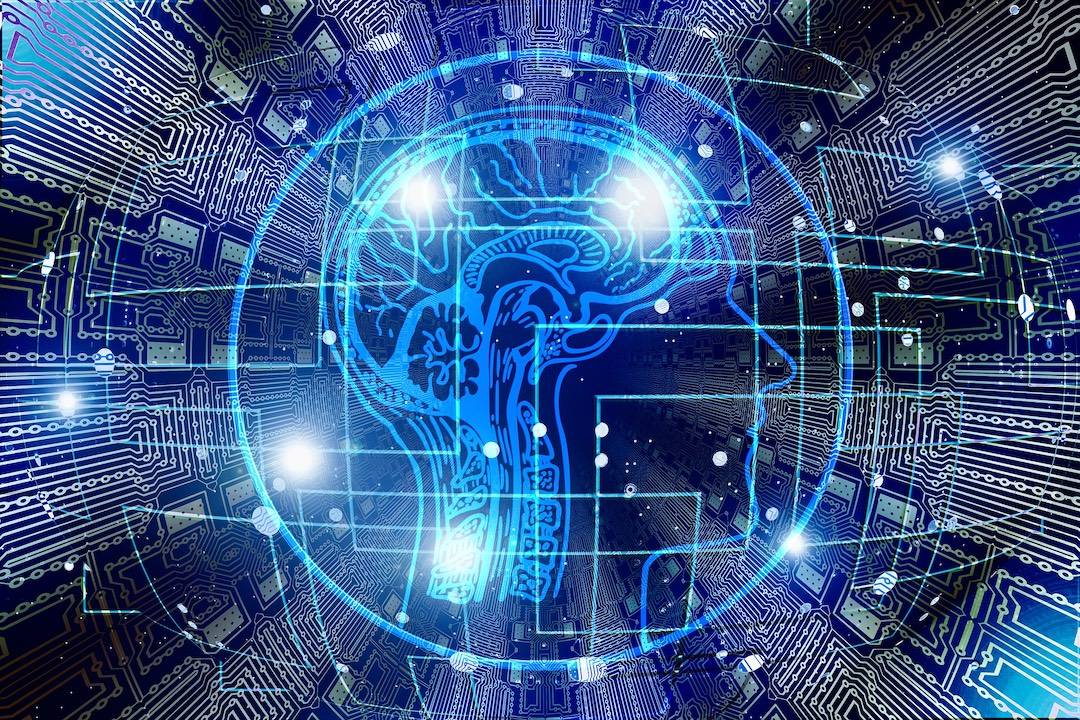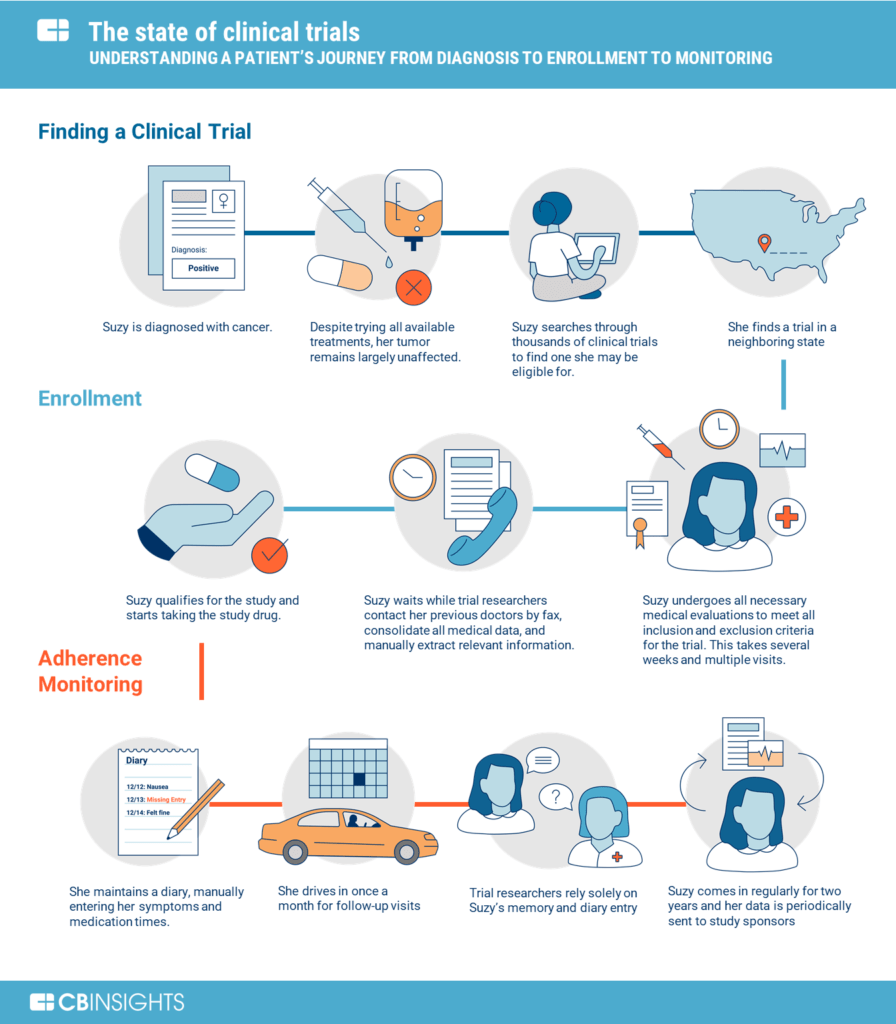Benefits of Artificial Intelligence in Healthcare & Medicine
Rapid advancements in Artificial Intelligence (AI) continue to introduce the technology to a wide range of industrial applications – with the medical device industry being no exception. Advances in analytical and computing techniques, coupled with the explosion of data in healthcare organizations, bring about many potential use cases of artificial intelligence to the fields of medicine and healthcare. As the presence of AI becomes increasingly adopted, we can start to analyze the benefits of artificial intelligence in medicine and healthcare as it begins to transform the medical device landscape.
Examples of some of the advantages of AI in healthcare include:
- Uncovering leading clinical practices
- Reducing research discovery time
- Streamlining administration
- Offering new, personalized patient treatment
Embraced at an industrial scale, AI has the potential to align patients and caregiver’s decisions in ways that improve treatment outcomes and add value.
Additionally, investors are also realizing the benefits of artificial intelligence in healthcare and continue to invest to fund advancement in the field.
As reported by Fierce Healthcare, in 2019, AI-based startups raised $26.6B across 2,235 investment deals, with healthcare AI startups being the most funded industry of all.

Source: 2019 AI Global Funding Report, CB Insights
In this article, we are going to investigate the potential benefits of artificial intelligence in healthcare and some of the already existing and growing applications of AI in the healthcare and medical fields.
Existing Examples of AI in Action
There are already many examples of AI appearing within everyday life applications, including:
- Nest devices for home automation use AI to determine personal preferences and adjustments for our daily needs
- Google Assistant on your smartphone supplies users with helpful “just in time” information based on what it learns about your preferences and past user behavior
- Self-driving cars, popularized by Tesla
All of these examples use different aspects of AI to enable technology to be integrated in different applications. It is important to understand the difference between these terms and how they apply to different applications.
Artificial Intelligence and Machine Learning in Healthcare
AI is a broad term used to describe any human-like intelligence displayed by computers, but it doesn’t necessarily differentiate between specific terminology, such as machine learning, deep learning or natural language processing (NLP).
As demonstrated in the below image, artificial intelligence can be broken down into main and sub-branches of study.

Source: Samrat Kar | https://medium.com/ml-ai-study-group/ai-mind-map-a70dafcf5a48
One of the potential benefits of using AI in healthcare and medical fields is machine learning.
Machine learning is the application of AI built using smart algorithms. As more data is inputted into the system, the machine learns from it without relying on rule-base programming.
For example, clinicians could use known data – such as medical images – that have been assigned a ‘disease’ or ‘healthy’ state. Inputting known data into machine learning algorithms helps the machine then ‘learn’ the differences between the two. Future images inputted into the algorithm would then be able to determine one of the two states based on existing data submitted to it.
Deep learning takes machine learning one step further, creating structured algorithm layers to create what is known as an artificial neural network. The output from deep learning systems allow for greater accuracy at influencing decision making, in a system that can train itself and with less human intervention, as referenced above.
AI has already proven itself to be quite the disruptor, and machine learning in healthcare brings about a whole new paradigm for how things work or how we get tasks done. Let’s take a look at how the benefits of AI in medicine can be adopted and applied to a range of healthcare and medical device applications.
Benefits of AI in Healthcare
The advantages of artificial intelligence in healthcare provide medical professionals with revolutionary opportunities to deliver treatments to their patients that are more precise, proactive, and effective than ever before.
Lower Overall Costs to Healthcare Providers
The healthcare industry is constantly pressured to lower costs while still providing high-quality care. One way healthcare providers meet this challenge is by using artificial intelligence (AI). AI can help to automate routine tasks, freeing up staff time for more critical ones.
AI can help healthcare providers more efficiently diagnose and treat patients. For example, hospitals can use AI to screen X-rays for signs of disease. This can help to reduce the number of unnecessary tests and procedures, which in turn lowers the overall cost to healthcare providers. In addition, AI can create personalized treatment plans for patients. This ensures that each patient receives the most effective care possible, leading to better health outcomes and lower costs.
As the use of AI in the medical field becomes more widespread, the overall cost of healthcare is likely to decrease.
Artificial Intelligence to Assist in Surgery
From providing guidance to surgeons during procedures to automating the process of mapping out a patient’s anatomy, artificial intelligence has many advantages in healthcare and surgery. In fact, a growing number of studies have shown that AI can play a valuable role in assisting surgeons during procedures.
For example, AI can create detailed 3D models of a patient’s anatomy, which can help surgeons plan the best approach for each case. In addition, AI-assisted surgery has been shown to reduce surgical times and complication rates. AI can also help to improve the accuracy of surgical procedures while simultaneously reducing the time it takes to complete them.
As AI benefits in healthcare continue to develop, its role in surgery will likely expand.
Error Reduction in Prescriptions
Prescription errors are a serious problem in the healthcare industry. In fact, according to one study, around 1.5% of prescriptions are incorrect. This may not seem like a high percentage. Still, when you consider that over 4 billion prescriptions are filled every year in the United States alone, it quickly becomes apparent that prescription errors can significantly impact patient safety.
One of the major advantages of using artificial intelligence in medicine is that it has the potential to reduce prescription errors. AI-powered systems can help to verify that prescriptions are being filled correctly and that the correct dosage is being dispensed. In addition, AI can flag potential errors so that they can be corrected before they cause any harm.
Improving Clinical Health Data Management
As health care moves toward adopting digital health, the requirement for generating and collecting more data is required. Clinicians and Healthcare Professionals already struggle with data overload from a myriad of healthcare and connected medical devices. Providing them with more raw data will only serve to overwhelm and prove ineffective to advancing care.
One way to overcome the data overload associated with digital health applications is the implementation of smart algorithms. These machine learning algorithms can provide insights by processing the data and identify patterns that are not immediately obvious to the human eye; a more efficient way of getting actionable data without relying on human intervention.
A good example of smart algorithms in action are devices that monitor glucose levels. Rather than providing the raw data of glucose levels, these devices identify trends in and only notify the user when their action is required. Advanced versions of these devices – such as Medtronics’ Continuous Glucose Monitoring device (CGM) – are capable of automatically adjusting insulin doses to respond to key glucose information.
This is just one of many examples of AI in healthcare where companies are developing new digital health technology with similar principles for other monitored conditions.
Processing Large Data Sets for Diagnosis
The processing of large amounts of data is yet another one of the benefits of AI in healthcare and an area where AI is disrupting the medical device world.
For example, a recent NIH study into the diagnosis of metastatic breast cancers using artificial intelligence found that the technology was as accurate as 99%. In this study, the AI was even proven to be able to detect the presence of spreading cancer cells – micrometastases – which are typically very difficult for human pathologists to detect.
Another study found that, when diagnosing on their own (without the aid of AI), pathologists miss up to 60% of small tumors. This is another way in which AI can prove to be a lifesaver when used with medical devices. Early detection and appropriate treatment are always preferable for better health outcomes.
Improving Healthcare in Under-Resourced Areas
Some countries face particular challenges from being under-resourced with qualified clinicians and/or have less access to skilled training. In these countries, undiscovered or misdiagnosis of health issues tend to be more common.
In one study, the use of high-resolution microendoscope images for the diagnosis of esophageal tumors was found to be highly effective, with great potential for use in countries with skill or resource challenges.
In contrast, NASA’s Human Research Program is developing a platform that uses machine learning to identify a wide variety of issues that are seen as critical issues for space flight.
This new technology allows important factors such as bone density, intracranial pressure, and cardiovascular pathologies to be continually monitored in a hostile environment such as space.
NASA is also developing smart guidance systems that allow relatively untrained astronauts to use ultrasound machines properly. By providing “GPS-like” guidance, astronauts know where to move the probe and how to move it to get good images.
These same technologies developed by NASA could again be applied to any under-resourced communities. If the technology is proven accurate, then this could help speed accurate diagnosis for these populations.
Speeding Up Drug Development with Artificial Intelligence
The traditional development process takes a very long time before a drug is successfully developed, often involving several “misses” before companies strike one formula that works. This long development period adds to the high cost of drugs that we see today.
By implementing AI within the drug development process, scientists hope to identify the most promising developments early on within the R&D process, helping to save time and resources as part of the initial discovery phase.
One example of AI being used within the drug development process is demonstrated in a partnership between GNS Healthcare and REFS (Reverse Engineering and Forward Simulation) to unlock and analyze complex medical data. Using patient data, researchers can generate new models to find hidden drivers in cancer progression.
Another example of AI in action, is the partnership between GSK and Exscientia to discover novel and selective small molecules for up to 10 disease-related targets. The aim is also to make the early stages of drug discovery more efficient.
In fact, if we look at the entire development cycle for pharmaceuticals, AI can have an impact at every phase.
For patients who have exhausted all other treatments for their condition, a clinical trial may be their last hope. One of the major challenges for patients is finding and being accepted onto a relevant clinical trial.
Currently, patients have to scour the government database of clinical trials themselves, unless their physician or someone they know happens to already know of a trial for them. They then go through an exhaustive process of evaluations for inclusion and exclusion criteria, as detailed in the process map below from CB Insights.
AI in the Medical Field and Medical Device Design
Among the key AI trends is utilizing artificial intelligence to monitor and assess information that is pertinent to a medical device’s design, in the hopes of creating improved designs in the future.
Using AI, the improved ability to monitor issues such as adverse events, complaints and related conditions, is beneficial for future product designs. With machine learning, using algorithms to scan product databases assist with future product designs that can address concerns as part of the product development process.
Patient Impact
The many benefits of AI in healthcare doesn’t stop at physicians, but can also be applied to patient impact.
Many patients miss out due to enrollment difficulties, so AI can help by recommending trials that are a match for patient conditions or symptoms. By using smart algorithms to extract data from a patient’s medical records, suitable study recommendations can be made, saving the patient hours of painstaking searching for a trial.
These examples of artificial intelligence in healthcare are not a case of using AI technology to replace healthcare professionals, but an example where using new technology can provide better diagnosis and care, at a greater speed and with less human intervention.
Current Challenges for Artificial Intelligence within Healthcare
Though the advantages of using AI in healthcare are clear, there are a handful of challenges to be aware of:
Ensuring Data is High Quality and Accessible
Data management must be a top priority for the benefits of artificial intelligence in medicine to be fully realized.
First and foremost, for artificial intelligence algorithms to be effective, they need to be trained on high-quality data. This data must be correctly labeled and structured to be compatible with the algorithms. Furthermore, it must be accessible to those who need it.
In addition, artificial intelligence algorithms can produce a large amount of data. This data needs to be interpreted correctly to extract the relevant information.
Deploying and Maintaining Artificial Intelligence Systems
Once developed, artificial intelligence systems need to be deployed in a way that is efficient and effective. This can be a challenge, as there may be a need to integrate the systems with existing infrastructure. Further resources will then be required to regularly update and maintain the systems.
Securing AI Systems
In order for companies to stay compliant with laws and regulations such as HIPAA or GDPR, the correct access, storage and security of data is paramount for any systems to be successfully implemented.
Overcoming compliance challenges can be complicated further when there are additional factors to solve, such as existing software and infrastructure that is used to manage data from a range of different platforms and networks.
Resources
The complexity of artificial intelligence in the healthcare and medical industries is greater than outlined in this article.
Fortunately, there are plenty of additional resources to help stay up-to-date and understand the complexities, solutions and news within the field:
- Galen Data – Cloud Solutions for Medical Device Connectivity
- FDA – Software as a Medical Device (SaMD)
- FDA – Proposed Regulatory Framework for Modifications to Artificial Intelligence/
- FDA – Evolving Role of Artificial Intelligence in Radiological Imaging
- Machine Learning (AI/ML)- Based Software as a Medical Device (SaMD)
- IBM Watson – Artificial Intelligence in Medicine
- Health IT Analytics
- The Brookings Institute – Risks and Remedies for Artificial Intelligence in Health Care
- Johner Institute – AI in Medicine
- Gartner – The Need for AI Governance in Healthcare
The Future of AI in Healthcare and Medical Fields
AI is one of the biggest disruptors of our generation and has the potential to be a huge asset to medical device companies in future years. Like with most disruptive technologies, there are many potential pitfalls that could prevent the successful implementation of AI within the industry.
The number of AI benefits in healthcare is vast; whether that be reducing the reliance of human knowledge, speeding up the drug development process, or making healthcare cheaper and accessible to a range of different populations.
For artificial intelligence to be a success in any industry, smart algorithms need unfiltered access to a range of data sets. This is a challenge for the healthcare and medical device industry, as regulations such as HIPAA make it challenging to share data whilst remaining compliant with laws and regulations.
Despite these sorts of challenges, AI continues to progress as healthcare companies focus on expanding their digital capabilities, making the importance of AI in healthcare more and more evident.
As clinicians, healthcare professionals and patients start to become aware of the benefits of using AI in healthcare, innovation in the field will continue, making AI in the medical field cheaper and more accessible to patients worldwide.
To learn more about Galen Data’s cost-effective, compliant solution to medical device connectivity, schedule a demo today.









